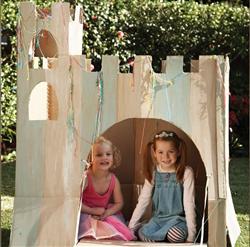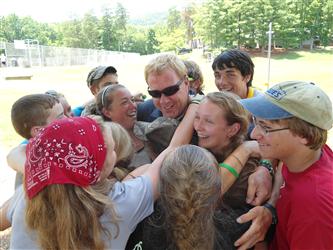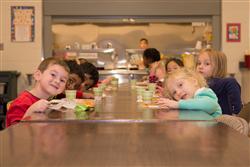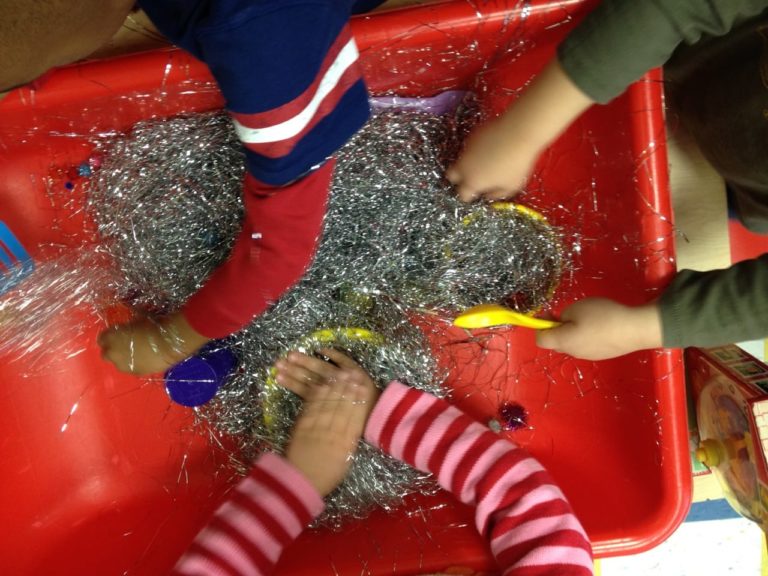Benefits of a Montessori Education
By Guest Blogger Julie Smith, a local Montessori educator
“One test of the correctness of educational procedure is the happiness of the child.” ~ Maria Montessori
I walked into a Montessori classroom when I was fifteen years old and fell in love with this method of teaching. It was part of an internship with my high school. Once I attended college earning a degree in early childhood education I rushed off to Boston to get my Montessori teaching certificate. I was young and idealistic. This quote by Maria Montessori fueled a sense of endless possibility and joy as I launched into adulthood and a career. “Free the child’s potential and you will transform him into the world.” Thirty years later and after observing many children the method still resonates deeply and has allowed me to have meaningful work. I have seen many children who received a Montessori education become young adults who are transforming the world. I believe their education played a role in this.
I am often asked, “What is Montessori? I usually gauge the interest and needs of the person asking as I could talk for hours about it. Here I outline a few of the key and most unique points.
Role of the Teacher
Maria Montessori developed the approach using observations of real children in a classroom. Teacher observation is very important and frames a very obvious difference in the atmosphere in Montessori classrooms. At times the teacher may be instructing an individual child or small groups of children directly teaching very specific skills. More often her role is a one of facilitator, directing children and guiding them based on what she sees individual children doing. She also places intention on building the individuals in the class into a community. These class communities span three years so children can build authentic relationships with others of different ages.
Role of the Prepared Environment
This way of being for the teacher, who is often called a “directress,” works because of the prepared environment. The teacher training highlights key areas and materials that are displayed on shelves. Children are allowed to move freely about the class. Allowing the child to choose their own activities is very important. The teacher places each and every thing in the environment with intention. This structure allows maximum freedom for children. Montessori taught that even young children have an inner guide. It is paramount to preserve this as it will be the core compass for the child’s lifelong journey. Each teacher brings her own flavor and creativity to her room but there is a common thread to rooms all around the world.
Clarity of Philosophy
This leads to another key point. Many schools spend much time developing teachers and giving them new skills, reading the latest research and developing a common lexicon. This takes time and energy. Because teachers in a Montessori environment have all received similar training the lexicon and teaching methodology are already there. Time and energy are thus able to go to the children and their families first. It is easy then to keep up with current trends and research that enhance and add to the base of a teacher’s knowledge.
To summarize the method has been tested for over one hundred years. Many parents are so passionate about it that they band together to expand or even begin schools. It is common to hear parents and teachers talk about being transformed by the joy they see in children as they unfold in a Montessori environment. To me it is a method of clarity, beauty and simplicity that unites children, teachers and parents in a partnership around the joy of lifelong learning. If you have never seen this in action take the time today to visit a Montessori school. It is a wonderful way to educate children for the present moment and the future. Parents, if you are considering a switch with your child’s education this year, I encourage you to consider a Montessori education. Many Triad area Montessori schools have plans to open in the Fall. To find one near you, search on TMoM’s Private School Directory here.
~ For more blogs on Education, click here.
~ Want to see more blogs like this and get notifications on local events and happenings? Subscribe to our free weekly newsletters here.








It is good to know that children are able to move freely about a Montessori class and can choose their own activities. I think that it is important to give kids autonomy so they can learn how to self-govern. I hope that I can find a school like this in my area that will help foster my son’s growth and independence.